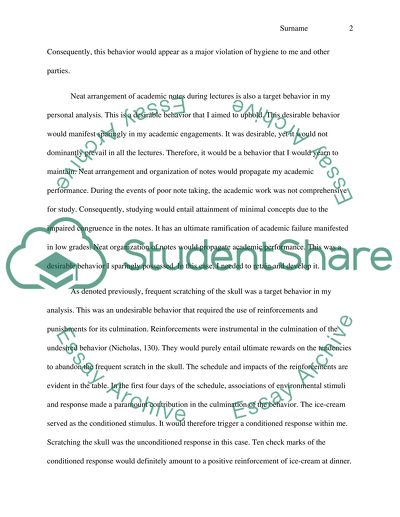Cite this document
(“Operant and Classical Conditioning Essay Example | Topics and Well Written Essays - 1000 words”, n.d.)
Retrieved from https://studentshare.org/psychology/1473407-behavior-modification-assignment
Retrieved from https://studentshare.org/psychology/1473407-behavior-modification-assignment
(Operant and Classical Conditioning Essay Example | Topics and Well Written Essays - 1000 Words)
https://studentshare.org/psychology/1473407-behavior-modification-assignment.
https://studentshare.org/psychology/1473407-behavior-modification-assignment.
“Operant and Classical Conditioning Essay Example | Topics and Well Written Essays - 1000 Words”, n.d. https://studentshare.org/psychology/1473407-behavior-modification-assignment.


